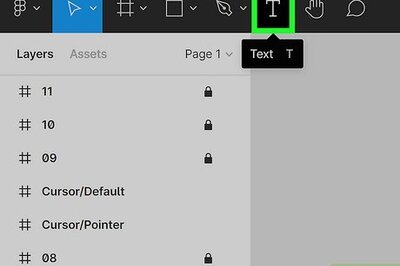
views
Title rivals Nico Rosberg and Lewis Hamilton were in rare harmony on Thursday when asked to voice their opinions on Formula One's controversial decision to ban radio assistance ahead of this weekend's Singapore Grand Prix.
Both agreed the change was "a challenge".
Rosberg leads his Mercedes team mate by 22 points with six rounds remaining, the pair fighting an often hostile season-long battle for supremacy with both drivers relying on their race engineers to give them a vital advantage during heated exchanges.
"I don't know how it's going to impact, but it's definitely a challenge. They can only tell me 20 percent of the stuff they used to tell me, but I like challenges, so that's good," German Rosberg told reporters.
Hamilton felt the restrictions, imposed following his victory in Monza, would be something of a step into the unknown, but said it was a positive one that had him reminiscing about his early days in motorsport.
"On one side, over my F1 career it's been a real battle making sure you say the right things on the radio - and I haven't always got it right - so that's a great thing," the Briton laughed.
"On the other side, the way Formula One has gone it's really an assistance.
"At the end of the day, we still have to do the job out there, but we do get help in terms of guiding us... I quite like the fact that it feels like I am going back to my karting days.
"The only way you can find out what the guy behind, or in front, is doing is by watching them. I am excited about it."
FORMATION LAP
For Rosberg, racing without radio assistance was less daunting a prospect than losing the help his engineers would previously give him before the race started.
"The formation lap will be the most difficult as there are so many procedures and we were not expecting this (ban)," he added.
"For sure, the starts are going to be difficult to get right because we relied on the engineers to give us the settings over the radio, but now that's gone. So it's down to me now."
While he welcomed the restrictions on assistance, Rosberg felt that it would be a bad idea to silence the in-race broadcasts completely.
"No. In the end, we want to entertain. I am sure the fans find it cool to hear us have conversations, hearing different things... shouting at other drivers and such," he added.
"I think that's what the fans enjoy so it would not be good to cut it out completely, but to compromise to bring the best entertainment we can bring."
Hamilton admitted that it could be a lonely experience when you have minimum contact with the pit crew, but was still relishing the prospect of relying more on his instincts than ever before.
"I'm excited with the new challenge. I was told on Monday and I thought 'cool, how can we utilise it?' the 2008 world champion said.
"However, there's so much help you need on the formation lap to set the car up...," he added.
"To remember all of that without radio assistance is going to be really difficult. I am excited to see how we handle it. It's a bit like throwing more balls in the air for us to catch and we are already catching quite a lot."
The radio restrictions did not receive unanimous approval from the drivers.
Speaking after a meeting between the teams and the sport's ruling body, Brazilian Felipe Massa, of Williams, said he expected a backlash from the drivers and raised concerns about safety issues.
"For me, it's a little bit funny that they change this type of thing at the moment," he told reporters. "It's not the correct moment."
He said many technical complexities involved in driving a modern F1 car were seen and understood only by the pit teams and pointed out also that cars with smaller dashboard displays were disadvantaged.
"The team that it will help will be Mercedes, the team that is already winning the championship," Massa added.
"If it stays like this, it will be a big fight tomorrow (Friday) in the drivers' briefing."




















Comments
0 comment